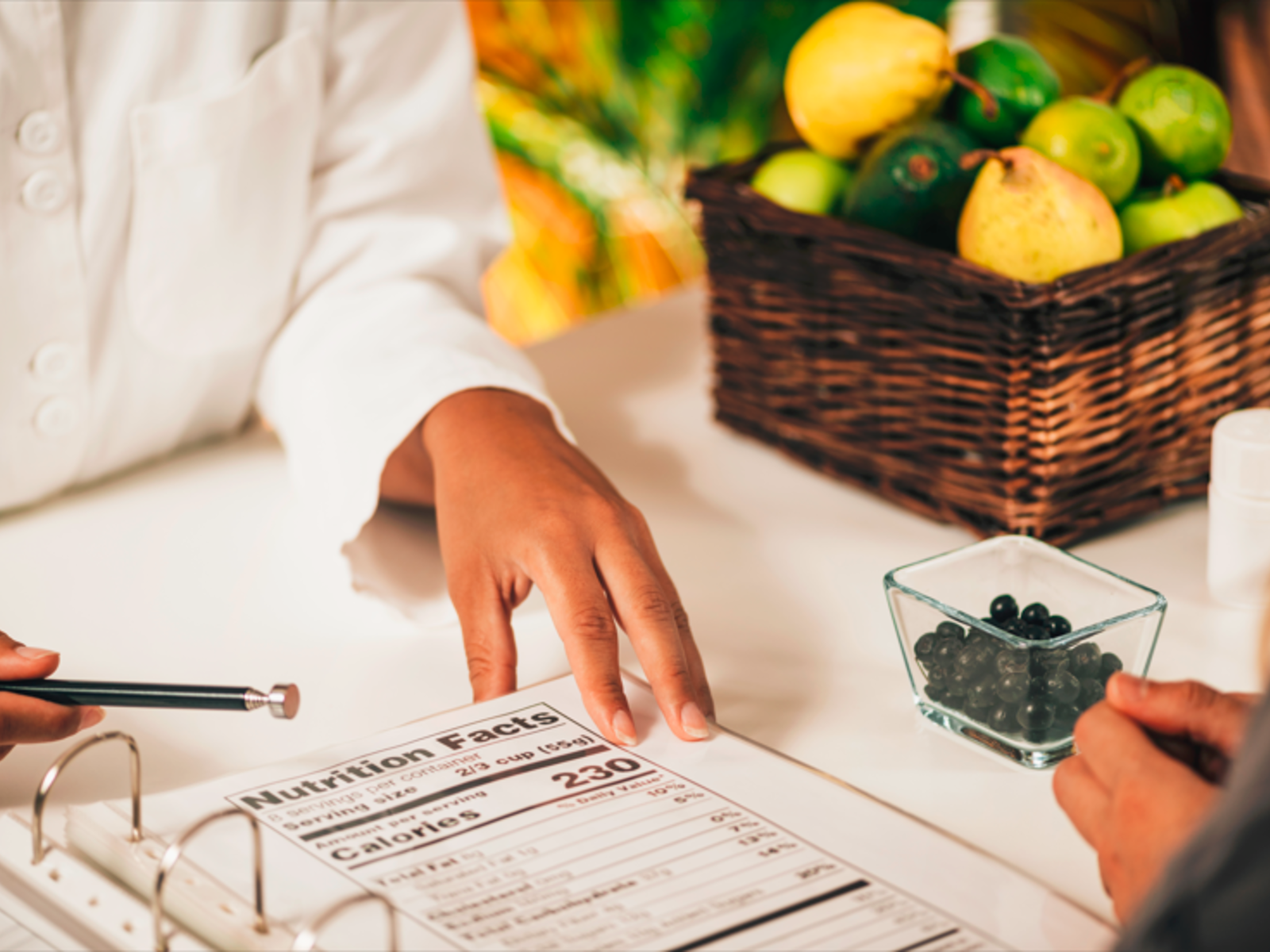Nutrition Facts: Daily Calories Intake & More

To maintain good physical and mental health, one should explore nutrition facts that explain the body’s nutritional needs, the number of needed calories per day, and more.
This article will explore varying nutrition facts that will help you take care of your body and make it easier for you to keep a healthy and balanced diet.
But first, let us start with the most basic yet essential question: What are calories?
Basic Nutrition Fact: What Is a Calorie?
Each calorie is a unit that measures and scales the energy different types of food provide us with. The amount of calories one individual needs differs from one person to the next, depending on several factors, including:
- Weight.
- Height.
- Gender (Male/Female).
- Age.
- Physical activity.
Below are the estimated needed calories per day for different age groups:
- Young Children: children from two to nine years old need around 1000-1800 calories in a typical active day, while children from ten and above need almost 2200-3800 calories daily.
- Males From Ages 18 - 40: approximately 2000-3200 calories.
- Calories for Males Ages 41-76: approximately 2000-2800 calories.
- Calories for Females Ages 18 - 40: approximately 1800-2400 calories.
- Calories for Females from Ages 41 - 76: approximately 1600-2200 calories.
- Calories for Pregnant Women: While the nutritional needs of pregnant women vary during pregnancy.the pregnant woman needs more calories to meet her and the baby’s needs, as her nutrition demands exceed the typical by approximately 340-400 calories.
Nutrition Facts: Essential Nutrients and Vitamins
Vitamins and minerals are essential for the human body; they provide it with calories and nutrients needed to function healthily.
And in case the human body struggles with a deficiency in any of the nutrients, it becomes more subject to diseases and poor health.
Continue reading to discover the essential vitamins and nutrients your body needs, the effects of their deficiency and more nutrition facts.
- Vitamin C: The body needs 15-90 mg of vitamin (C) daily, and its deficiency leads to several diseases, most notably scurvy.
- Thiamine: The individual needs 0.5-1.2 mg of Thiamine daily; it can be obtained from various foods such as pasta; liver, fish, and legumes. Its deficiency results in health issues, such as Beriberi.
- Niacin (Vitamin B3): It is found in various sources, such as; calf liver and chicken liver, in addition to lentils. The daily amount that the individual needs of Niacin is 6-16 mg, while lacking this vitamin may result in Pellagra disease.
- Vitamin D: The body needs this vitamin in relatively high proportions. Vitamin (D) can be obtained from many sources; liver, egg yolk, and fish oil, and it can also be obtained through exposure to sunlight at certain times. Vitamin (D) deficiency leads to many health problems like Musculoskeletal weakness and Osteoporosis.
- Vitamin A: The body needs vitamin A in high amounts, as the individual needs 300-900 micrograms daily. This vitamin is found in liver, eggs, oranges, and green, leafy vegetables. Among the most notable effects resulting from vitamin (A) deficiency is dry eyes.
- Iron: Iron is one of the most important nutrients that an individual must consume properly, as iron deficiency leads to several health issues, including; Anemia, under-eye circles, fatigue and exhaustion. Iron is found in spinach, liver, and legumes of all kinds, in addition to red meat.
- Folic Acid: The daily amount needed of folic acid is approximately 150-400 micrograms, while its deficiency results in neural tube defects. Folic acid is found in green, leafy vegetables such as lettuce, cabbage, spinach, and broccoli and in legumes, whole grains, and citrus fruits. Keep in mind that some vitamins can be obtained and compensated for through medical vitamins available in pharmacies.
It is important to note that the nutrition facts mentioned above are subject to adjustment depending on each individual's needs.
Therefore, it is best to refer to a nutritionist to determine your exact personal needs of all the essential nutrients and vitamins.
Monthly Food Parcels Provided by Tkiyet Um Ali
Tkiyet Um Ali’s feeding programs operate with nutrition facts in mind, so the meals and food parcels provided are healthy and balanced, offering nutrients that benefit the recipients’ health and well-being.
Tkiyet Um Ali (TUA) provides monthly food parcels to about 20,000 families living in extreme poverty in all provinces and governorates across Jordan struggling with hunger and poor nutrition through its Sustainable Food Aid program.
Food parcels are planned carefully to provide each family member with the essential vitamins and nutrients. Therefore, those parcels are divided into three categories, depending on the number of family members, as follows:
- Category B: Includes families consisting of six members or more.
- Category C: Includes families of three to five individuals.
- Category D: Targets families consisting of one or two persons.
In addition, Tkiyet Um Ali’s Wayfarer program provides daily hot meals throughout the year for 400 people daily at its main headquarters located in Amman, Al-Mahatta area, where wayfarers of different ages get their meals, including the elderly, women, men and children.
Each meal covers about (56%-63%) of the needed calories per day, equivalent to (1,120-1,270) calories, and it varies according to the meal’s ingredients; chicken, meat, legumes and others.
Donate to Tkiyet Um Ali to Combat Hunger
Help families and children struggling with poor nutrition by donating to Tkiyet Um Ali. You can contribute in the following ways:
- Donate the value of monthly food parcel.
- Sponsor one of Tkiyet Um Ali’s beneficiary families.
- Contribute to feeding a needy family with 3 JOD or 10 JOD per month.
- You can also donate the value of a daily hot lunch meal within the Wayfarer program; the meal's cost is 3.5 JOD.
Check Tkiyet Um Ali’s feeding programs and donation tools for more details.
